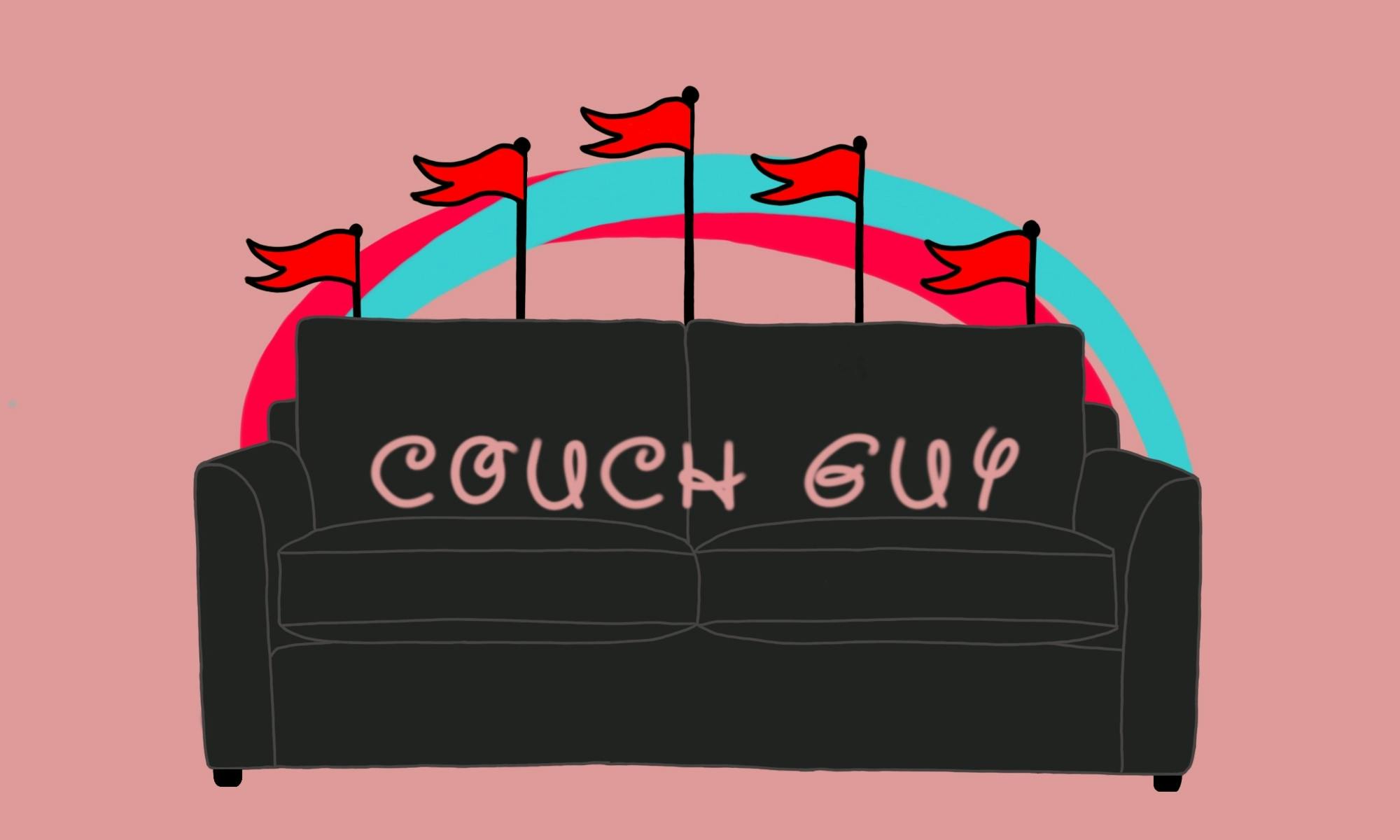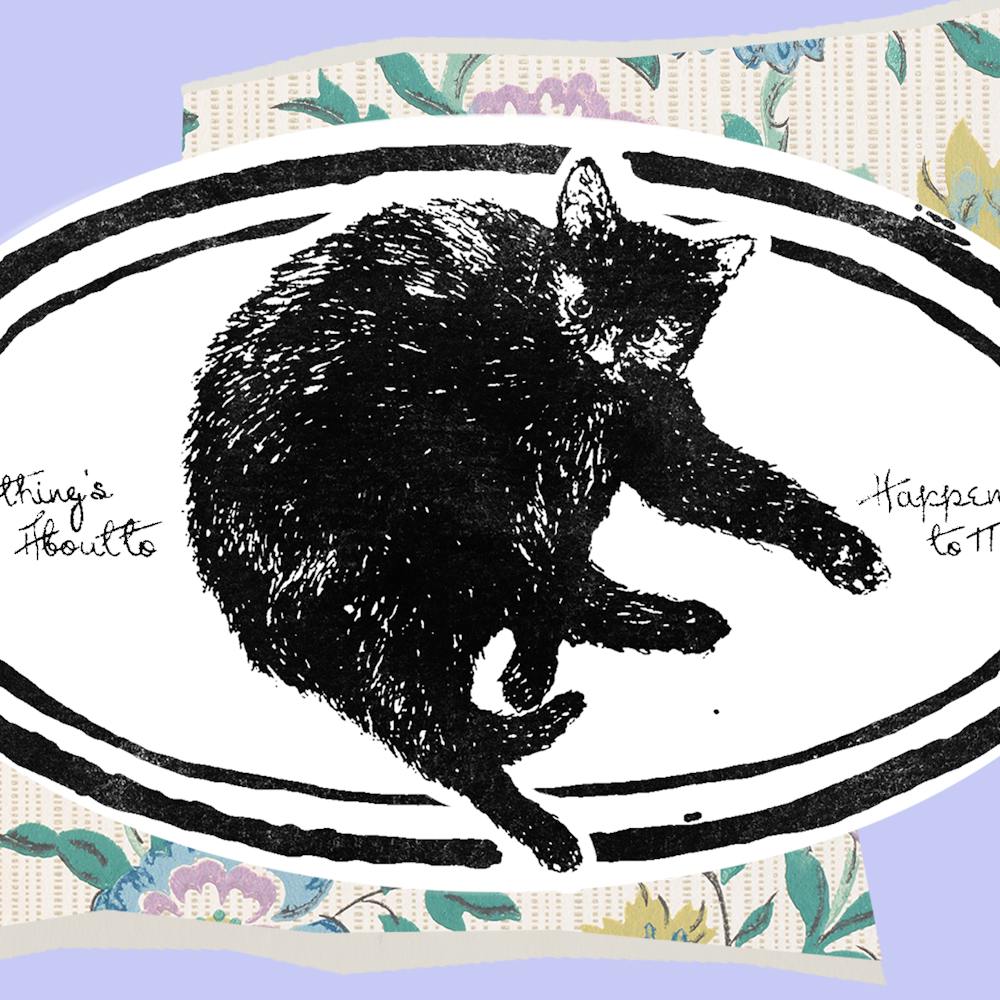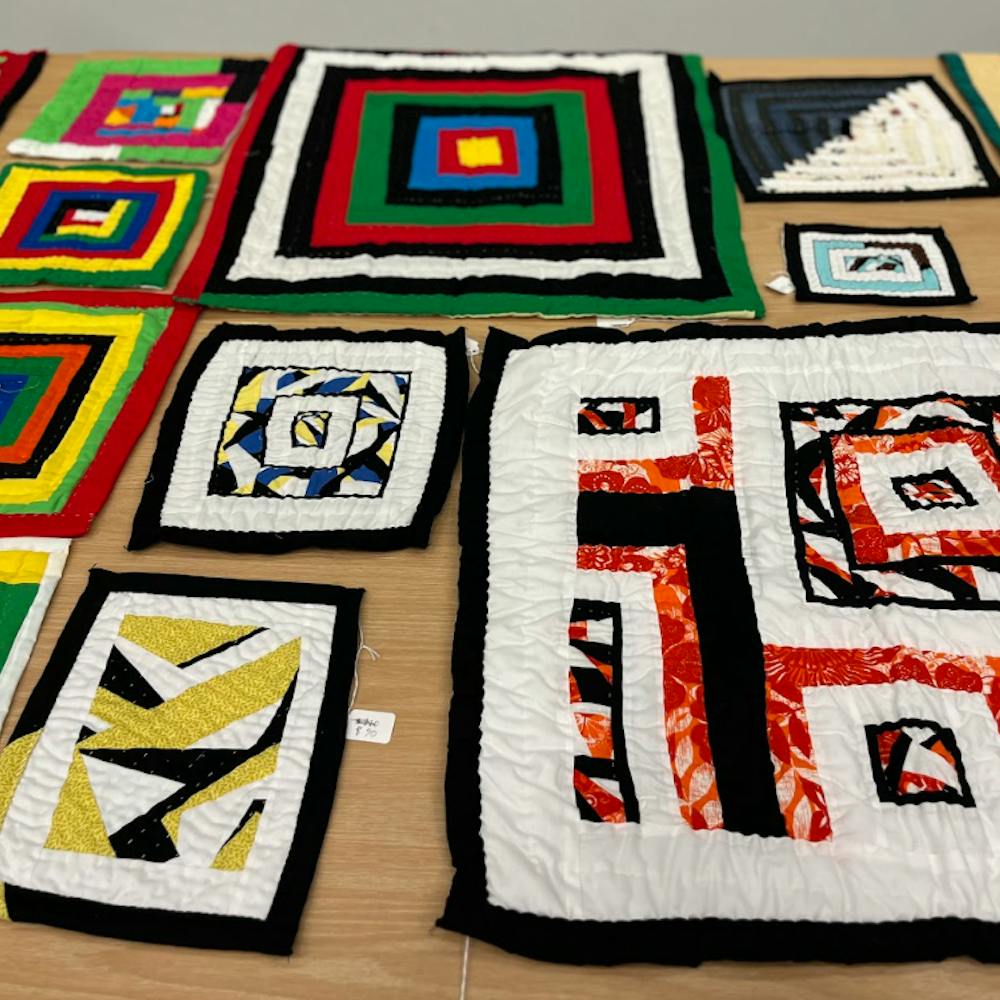‘Couch Guy’ has taken over the TikTok For You Page with over 1.2 billion views on the #couchguy and millions more on variations of it. Still, it has also made people stop and think about their personal red flags in a relationship.
Several weeks ago, a TikTok user by the name of Lauren Zarras posted a video surprising her long-distance boyfriend by paying him a visit. When she entered, her seemingly unenthusiastic boyfriend was sitting on a couch with three other girls, which earned him the name ‘Couch Guy’ by the TikTok community.
Millions of people have shared their thoughts about this situation through reaction and analysis videos, comical remakes and comments addressing the questions: Is he cheating? Should she break up with him? What exactly is going on here?
“He’s definitely cheating,” psychology freshman Lauren DeVol said. “He was being very unreactive … I feel like he would have been a little more happy to see his girlfriend after he moved away from her.”
This is the most common assumption amongst TikTok users who have weighed in, but Zarras denies all accusations against her boyfriend and even has made follow-up videos defending him.
There are creators and users who have backed Zarras’ claim, though. For example, human biology junior Kelsey Robinson does not believe an entire cheating accusation can be made based on one video.
“I think … they kind of took it and ran,” she said. “They immediately started almost attacking that girl and her boyfriend which I think personally is kind of wrong, but cancel culture is so big right now.”
Many feel pity towards Zarras as they consider what it would feel like wanting to surprise their long-distance partner and walking into what she did.
“That’s basically telling me that I’m not a good enough boyfriend for (my girlfriend) and that she needs other people,” kinesiology freshman Garrett Duncan said.
Whether this particular relationship is healthy, toxic, or somewhere in between, it certainly raises questions regarding what constitutes an unhealthy relationship and how that varies for different people.
Clinician and doctoral student in couple and family therapy Morgan Titus explained that often, what somebody expects out of a relationship and what that person constitutes as healthy versus unhealthy comes from what they have been surrounded by.
“A lot of it is seeing their parents in relationships or their family in relationships and what their families put up with and what was okay,” Titus said. “That’s how they kind of start to form their frame of reference for what people are willing to accept in their own relationships.”
One of Robinson’s personal biggest red flags is the lack of willingness to compromise, which was part of her most recent relationship that has now ended.
“I felt like, almost every time, I was the person to give up what I wanted for them, and we would talk about it and say, ‘Okay, next time let’s do this,’ and then it would never happen,” she said. “It would just be the same thing every time where I’d give up what I wanted to make them happy because they refused to do that for me.”
DeVol, too, has experienced a toxic relationship that has since ended. She said that she acted like her ex’s parent by doing chores for him and making him food as he sat in his bed playing video games.
“I cleaned his room, I did his dishes, I fed his cats, I even took care of his cats when he left … I did his laundry, too,” DeVol said. “I just saw this as normal for some reason. I was like, ‘Oh, okay, time to go to (his) house and do his laundry.’”
In retrospect, she realizes that this was not, in fact, normal. Her family tried making that clear to her, but she did not see it.
“My mom kept telling me, ‘Stop doing all this work for him. Let him do it himself. He’s a grown man. He’s out of high school, he can do it.’ I just kind of ignored it,” DeVol said. “I was like, ‘No, I’m just doing this voluntarily. It’s just what I want to do,’ and my sister was like, ‘Why are you putting in all this effort and he’s minimal (giving) effort all the time. You need to stop.’ And, I kind of ignored them, but looking back I should not have.”
Similarly, Robinson ignored the concerns of her friends and family regarding her relationship. This is common for those who are in unhealthy relationships.
“That’s the person that they love,” Titus said. “That’s the person that they want to be with. So, it’s really hard to understand that the person that you love could be hurting you, and so, a lot of the times, if you’re reaching out for friends and family, that can be a hard place.”
Support student media!
Please consider donating to The State News and help fund the future of journalism.
Toxic relationships can have a plethora of negative effects on a person, one of which is being somewhat stripped of their individualism and personality.
“When we’re thinking about toxic or unhealthy relationships, we’re thinking of ... power and control,” Titus said. “The person in power, obviously, makes the decisions (and) is dominating in all aspects. I would say that has a common theme of, your self-worth gets disrupted, how you view yourself and how you view others … how you view who you are and how you view the world, become a little bit different.”
Robinson has experienced this.
“I was almost put into a box where I remember I would say stuff and then after he would come and be like, ‘That’s kind of embarrassing that you did that,’ and I was like, ‘Oh oh, okay, I won’t do it again,’” Robinson said. “But, it wasn’t embarrassing. It was just that he didn’t like that part of my personality, and I definitely will never put myself in that box again, or let anybody put me in a box like that again.”
Titus placed emphasis that unhealthy relationships are on a continuum. How different levels of toxic relationships are addressed varies depending on each individual one.
“I think that a lot of people think of unhealthy relationships as very physically or emotionally abusive, so sometimes we kind of miss these smaller red flags like not having control, or feeling put down in the relationship, or not feeling like an equal partner, not having respect,” Titus said. “Again, all those things are also on a continuum. I think that all aspects of these things should be addressed, and I think that’s really important to do in therapy and in self-reflection and talking about with friends.”
Having gotten out of a toxic relationship, Robinson shared some advice for those who may be going through what she went through.
“If you really find that those things bother you, like, you’re willing to step away... and open up that door for them, then you shouldn’t be afraid to open up the door,” she said. “If they walk out, they weren’t worth it for you in the first place.”
Discussion
Share and discuss “TikTok's viral 'Couch Guy' opens up discussion of toxic relationships” on social media.







